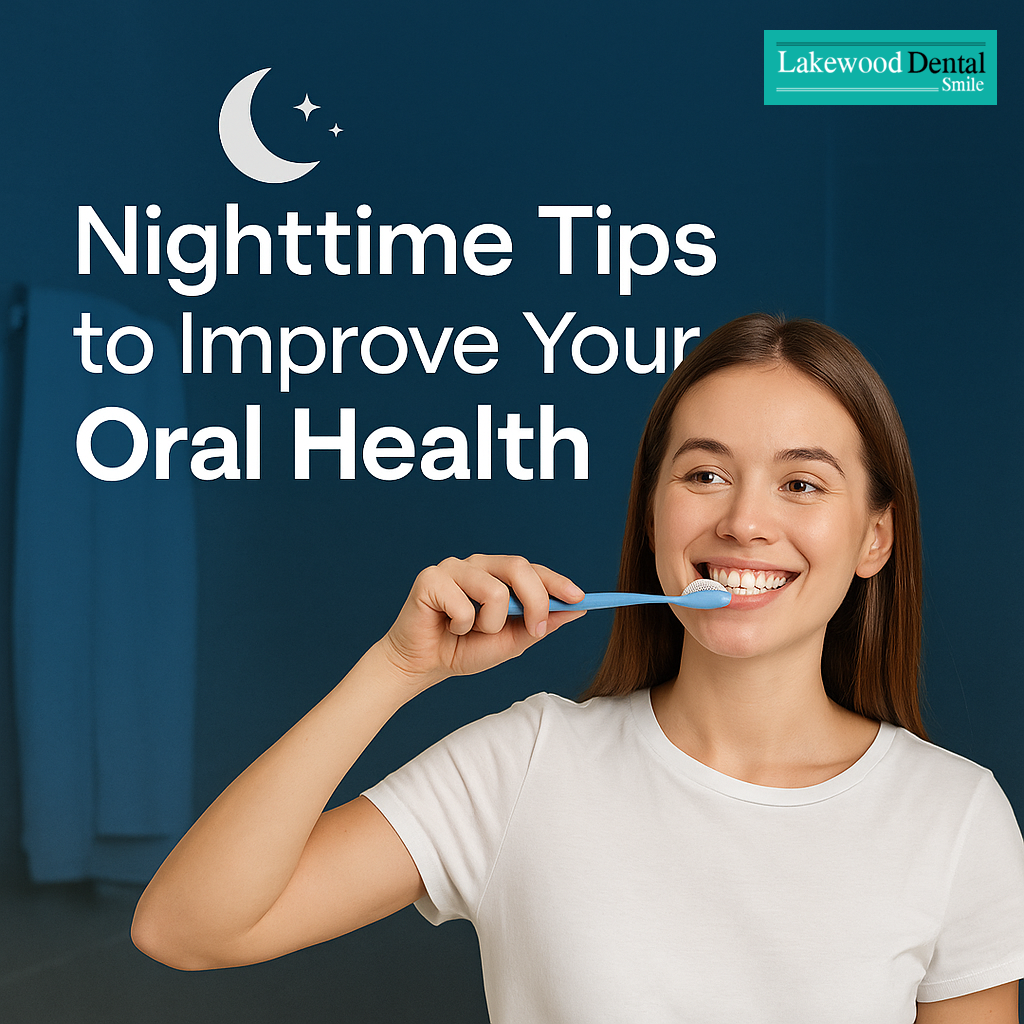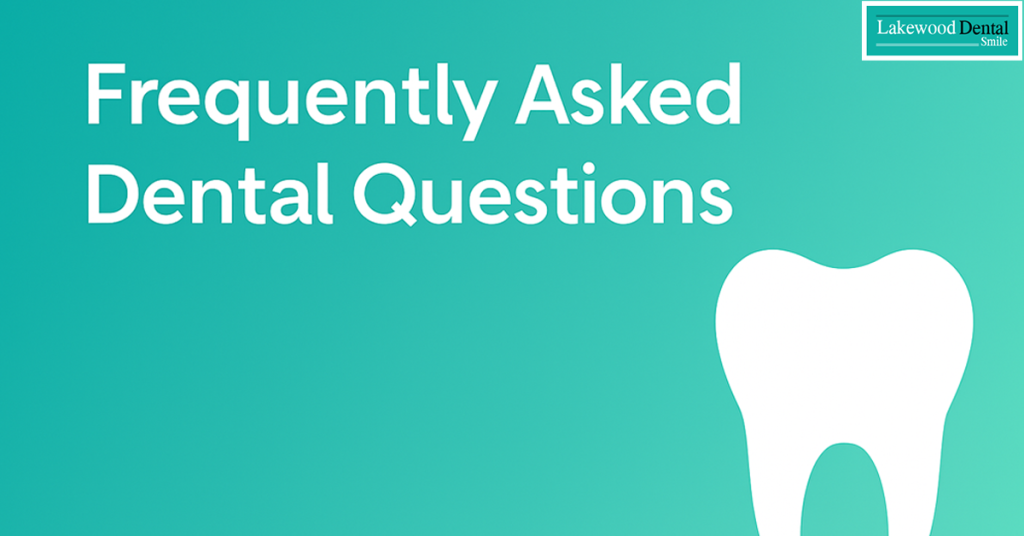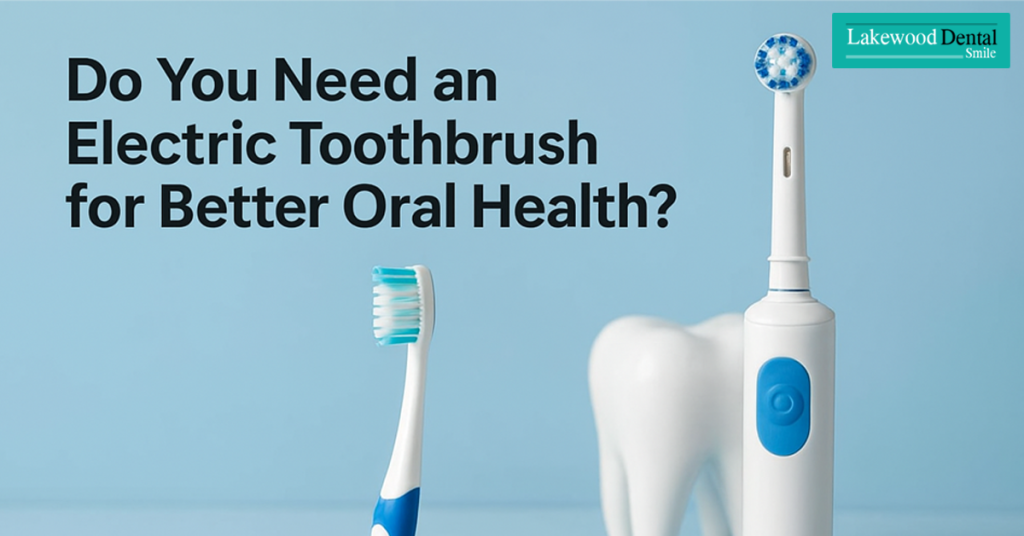A lot can happen inside your mouth while you sleep. During the night, saliva production slows down, giving bacteria more time to grow and settle on your teeth. This creates ideal conditions for plaque buildup, cavities, tartar, and gum irritation. Following consistent nighttime oral health tips helps protect your smile and prevents these issues from worsening. With the right habits, you can go to bed confidently and wake up with a fresher, healthier mouth.

At Lakewood Dental Smile in Dearborn, Michigan, preventive care is encouraged as much as treatment. A structured nighttime routine supports strong oral health and helps reduce long-term dental concerns. Below are eight proven nighttime oral health tips that can make a meaningful difference in your daily care.
1. Brush Before Bed
Brushing before bedtime removes the plaque, bacteria, and food particles that collect throughout the day. A patient who only brushed in the morning developed recurring cavities, but after switching to evening brushing, their oral health improved significantly.
Step-by-Step:
- Use a soft-bristled toothbrush
- Brush for 2 minutes
- Clean all outer, inner, and chewing surfaces
Nighttime brushing is one of the essential nighttime oral health tips for preventing morning breath and reducing gum disease risk. Adding proper brushing into your evening routine stops plaque from hardening overnight.
2.Use Proper Brushing Technique
Your technique directly affects how effectively you clean your teeth. Use gentle, short strokes and follow a sequence: outer surfaces → inner surfaces → chewing surfaces. For the back of your front teeth, tilt the brush vertically and use an up-and-down movement.
A patient who brushed aggressively experienced gum sensitivity, but after switching to a softer technique, their gum health improved. A gentle approach supports enamel and strengthens your overall nighttime oral health tips routine.
3. Switch to an Electric Toothbrush
Electric toothbrushes can remove plaque more consistently than manual brushes. Their oscillating or sonic motion cleans difficult-to-reach areas, especially around molars and along the gumline.
Comparison:
- Manual brushes work when used properly
- Electric brushes offer consistent movement, ideal for kids, seniors, or anyone with limited dexterity
Consistent plaque removal supports your wider nighttime oral health tips habits and reduces the need for emergency cleanings.
4. Don’t Just Brush — Floss!
Flossing removes plaque and food particles stuck between your teeth. If this plaque stays overnight, bacteria feed on it and increase your risk of gum disease and decay. When left too long, plaque hardens into tartar, which only a dentist can remove.
How to floss correctly:
- Use ~18 inches of floss
- Slide gently between teeth
- Curve around each tooth
- Go slightly beneath the gumline
Adding flossing to your nighttime oral health tips routine significantly lowers the risk of hidden cavities and improves gum health.
5. Rinse with Mouthwash
Therapeutic mouthwash strengthens enamel, reduces bacteria, and supports healthier gums. Alcohol-free mouthwash is ideal if you experience dry mouth, and fluoride rinses help prevent cavities.
Using mouthwash before bed enhances your nighttime oral health tips routine by keeping your mouth cleaner throughout the night. It also helps reduce morning breath and supports better gum care.
6. Be Aware of Teeth Grinding
Teeth grinding (bruxism) can happen during sleep without your awareness. Waking up with jaw soreness, headaches, or worn enamel are warning signs. When untreated, grinding can damage enamel, cause fractures, and lead to long-term sensitivity.
Custom night guards protect teeth while you sleep and strengthen your nighttime oral health tips by preventing unnecessary wear. Addressing grinding early helps you avoid more complex dental treatments.
7. Avoid Late-Night Snacking
Sugary or starchy snacks feed bacteria and accelerate decay overnight. Late-night snacking also increases plaque formation and leads to stronger morning breath.
Healthier options:
- Cheese
- Plain yogurt
- Raw vegetables
Rinsing with water afterward helps remove residue. Avoiding nighttime snacking is one of the simplest and most effective nighttime oral health tips for cleaner teeth and a fresher morning.
8. See Your Dentist Regularly
Even with excellent home care, regular dental visits remain essential. Professional cleanings help detect early signs of gum disease, cavities, and grinding damage. Dentists can remove hardened tartar and provide tailored guidance to enhance your nighttime oral health tips routine.
At Lakewood Dental Smile in Dearborn, Michigan, preventive, restorative, and cosmetic care work together to help you maintain long-term oral wellness.
Summary
- Brush thoroughly before bed
- Use a soft, gentle brushing technique
- Consider an electric toothbrush
- Floss nightly
- Use mouthwash before sleeping
- Watch for grinding
- Avoid sugary late-night snacks
- Visit your dentist regularly
By following structured nighttime oral health tips, you protect your teeth and gums during the hours when your mouth is most vulnerable. Discussing concerns like sensitivity, grinding, or morning breath at Lakewood Dental Smile can help you maintain a healthier smile long-term.




